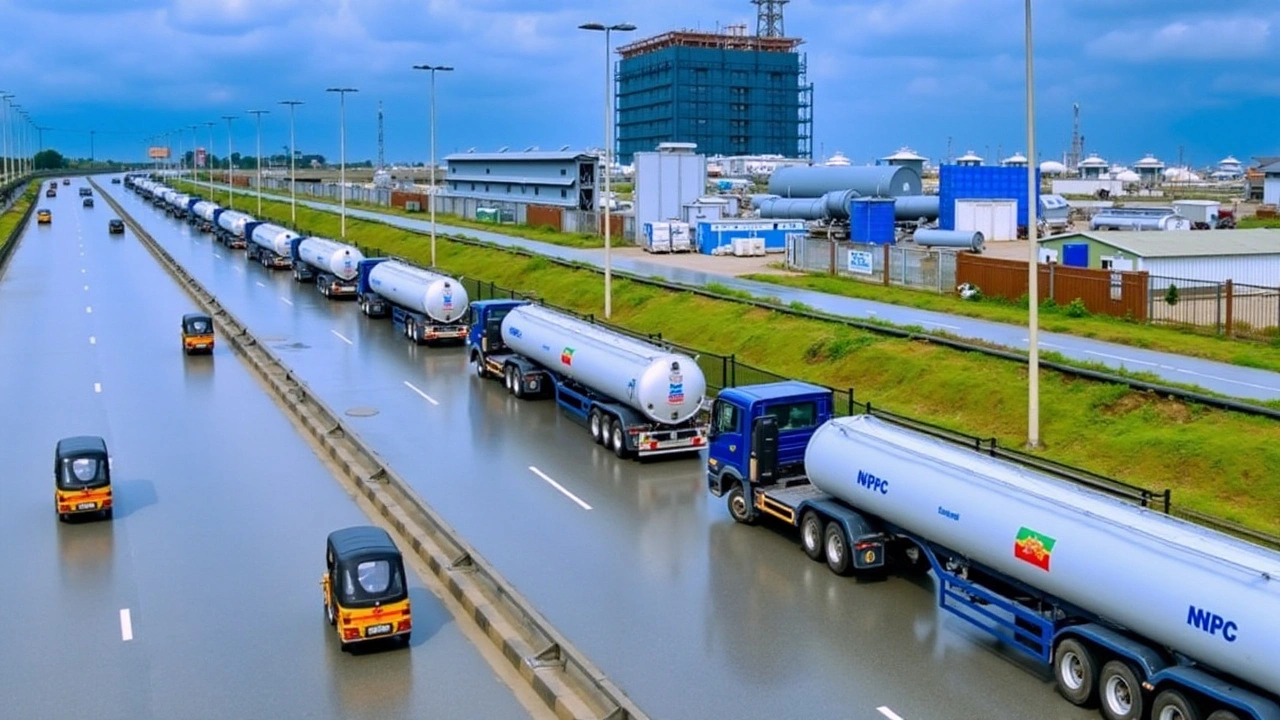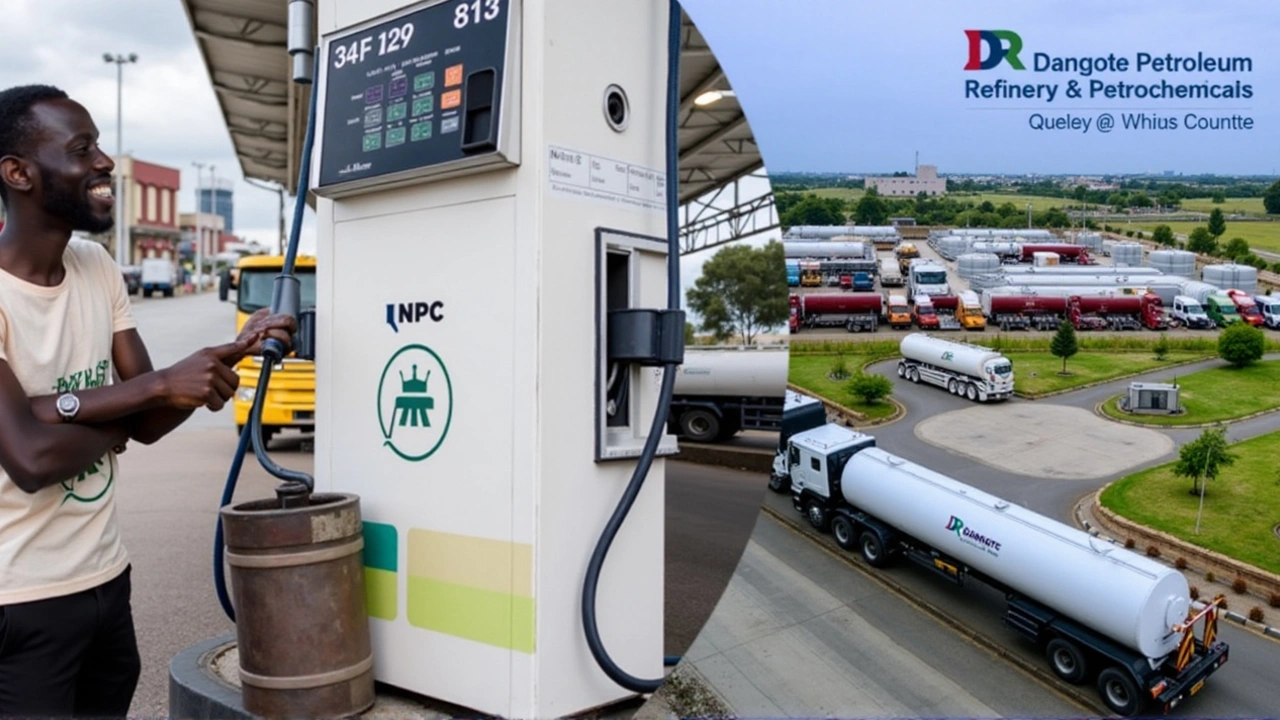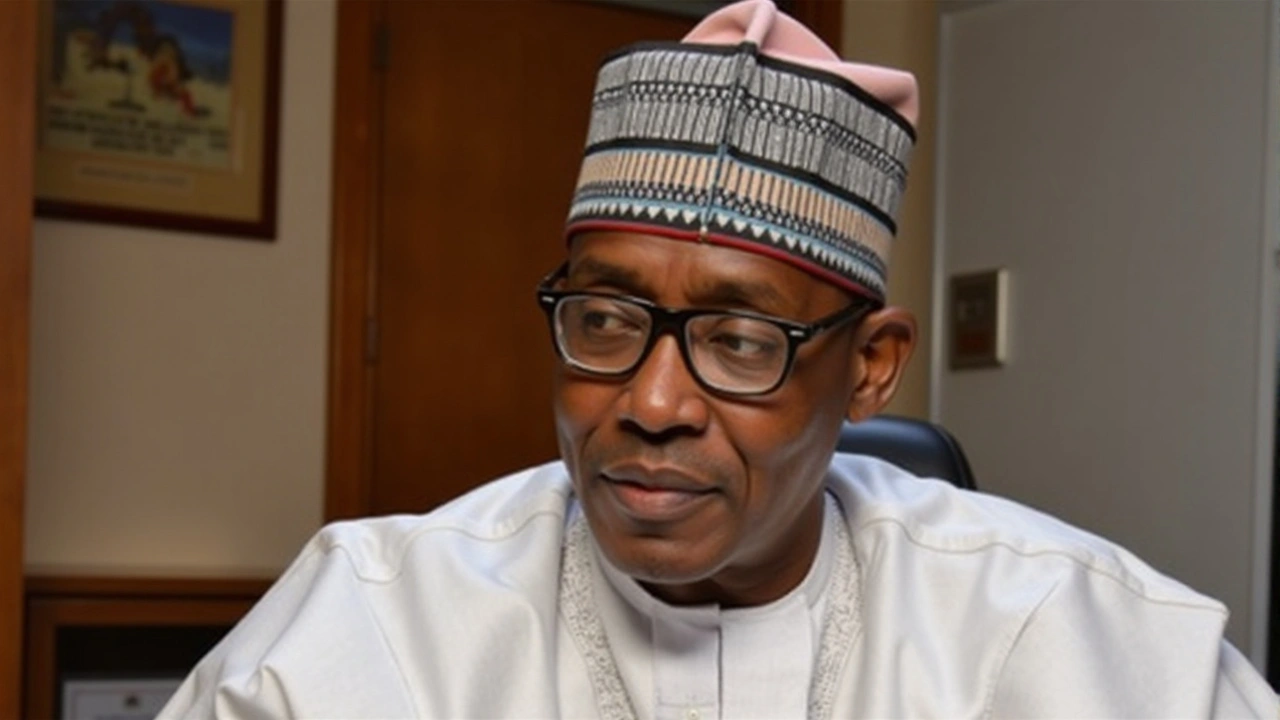NNPC Opts for Barter Over Cash in Petrol Deal with Dangote Refinery, Says Economist
 Sep, 17 2024
Sep, 17 2024
Clarification on Payment Terms Between NNPC and Dangote Refinery
Economist Kelvin Emmanuel has recently brought clarity to the ongoing debates surrounding the Nigerian National Petroleum Company Limited (NNPC) and its methods of acquiring petrol from the Dangote refinery. Emmanuel stated that the NNPC did not hand over cash for the 16.8 million liters of petrol it obtained from the refinery this past Sunday. This insight dispels previous misunderstandings and casts light on the complex nature of the transaction methods utilized by the NNPC.
This revelation comes amidst extensive discussions about the terms and conditions under which the Dangote refinery agrees to supply petrol to the NNPC. The parameters of these agreements are highly significant, given the extensive influence they can wield over the local fuel market dynamics and the broader economic landscape of Nigeria. The NNPC has made it clear that it would only commit to fully procuring petrol from the refinery if the global market prices of Premium Motor Spirit (PMS) are higher than the regulated pump prices within the nation. This implies that the pricing mechanisms in play are highly sensitive to fluctuations in global market forces.

Global Market Forces and Local Pricing Constraints
Given the NNPC's stance, it's evident that the pricing of petrol is not merely a local affair but is heavily influenced by international market conditions. When global prices are high, it becomes economically feasible for NNPC to offtake petrol from the Dangote refinery. However, when prices dip, the inverse becomes true, creating a complex scenario that necessitates careful negotiation and strategizing.
This brings us to the potential implications of such pricing strategies. If the NNPC finds itself unable to agree to favorable terms with the Dangote refinery, the refinery might seek alternative avenues to offload its petrol, particularly through exports. The prospect of exporting petrol rather than supplying it to Nigeria's local market poses significant considerations for the country's fuel supply chain and broader economic health. The export of petrol means the local market might experience tighter supplies, potentially driving up prices and creating a ripple effect across various sectors that depend on fuel.

Independent Petroleum Marketers' Perspective
The Independent Petroleum Marketers Association of Nigeria (IPMAN) has voiced its readiness to step in and purchase petrol from the Dangote refinery at any given price. This announcement indicates that there is indeed an alternative market for the refinery's products, separate from the NNPC. IPMAN's willingness to buy at market rates suggests a certain level of confidence in the potential profitability of such transactions, which might be based on expectations of rising local demand or other strategic considerations.
The implications of this willingness are multifaceted. On one hand, it offers a glimmer of hope that even if NNPC and Dangote refinery fail to reach an agreement, the refinery's products will still find a local buyer, maintaining a level of supply within the country. On the other hand, it underscores the ongoing challenges facing the NNPC as it navigates a complex web of economic and market forces, aiming to balance local fuel prices with global market realities.

Future of NNPC and Dangote Refinery Relationship
The current situation is emblematic of broader negotiations and challenges that the NNPC must address in its relationship with the Dangote refinery. The refinery, a massive infrastructure project, represents a significant stride toward Nigeria's energy independence. However, without clear and mutually beneficial agreements, the potential positive impact of the refinery might be undercut by economic and operational challenges.
Given these dynamics, the coming months will be critical for the NNPC and the Dangote refinery. The outcome of their negotiations will likely set the tone for the future of Nigeria's fuel market. Stakeholders across the industry and beyond will be watching closely, as the stakes are incredibly high, not just for the NNPC and the Dangote Group, but for the entire nation.
Broader Economic Implications
It is essential to recognize the broader economic implications of these developments. Fuel pricing and availability are closely tied to the day-to-day economic activities of millions of Nigerians and the operational efficiency of countless businesses. Any significant changes to how petrol is sourced, priced, or distributed can have cascading effects throughout the economy, influencing everything from transportation costs to the prices of goods and services.
The negotiations between the NNPC and the Dangote refinery thus represent more than just a business transaction; they are a critical focal point in Nigeria's ongoing efforts to ensure energy security, economic stability, and sustainable development. As the situation continues to evolve, it remains imperative for all involved parties to strive for solutions that maximize benefits for the broader population while addressing the operational and financial realities of the fuel market.

Akshat Umrao
September 19, 2024 AT 15:21Sonu Kumar
September 21, 2024 AT 10:06sunil kumar
September 22, 2024 AT 10:56Derek Pholms
September 24, 2024 AT 08:34musa dogan
September 24, 2024 AT 14:05Mark Dodak
September 26, 2024 AT 07:19Stephanie Reed
September 28, 2024 AT 06:26Jason Lo
September 28, 2024 AT 10:01Brian Gallagher
September 28, 2024 AT 15:54Elizabeth Alfonso Prieto
September 29, 2024 AT 14:07Harry Adams
September 29, 2024 AT 18:57Kieran Scott
September 30, 2024 AT 01:16Joshua Gucilatar
September 30, 2024 AT 03:42jesse pinlac
October 1, 2024 AT 01:27Jess Bryan
October 2, 2024 AT 17:09